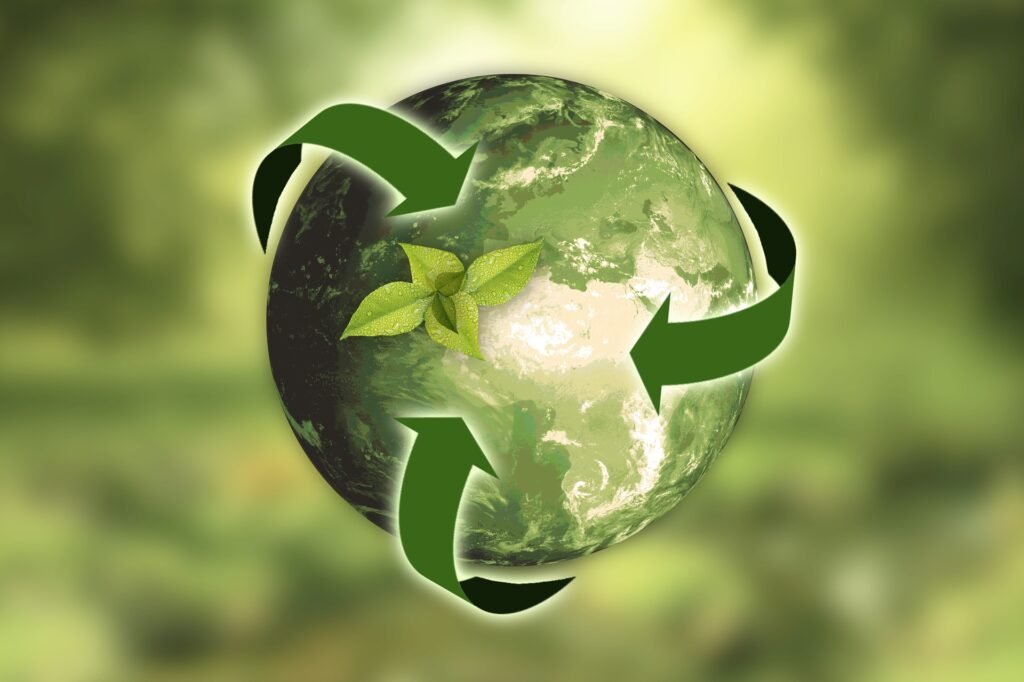On December 25, 2020, the Ministry of Economy, Trade and Industry (METI) of Japan announced that it had established “Green Growth Strategy towards 2050 Carbon Neutrality”. In this Growth Strategy, a higher goal is set for each of the 14 key sectors below, the present challenges and actions for them are stipulated, and the action plan is established with every policy for it, such as the budget preparation, taxation, regulatory reform and standardization, and international cooperation.
-
- Offshore wind power generation
- Ammonia-for-fuel industry
- Hydrogen industry
- Nuclear industry
- Automobile & battery industry
- Semi-conductor & communication industry
- Shipbuilding & ship machinery industry
- Logistics & civil infrastructure industry
- Food industry, and agriculture, forestry & fisheries
- Aircraft industry
- Carbon recycling industry
- Housing & building industry / Next-generation solar industry
- Resource-recycling-related industry
- Life-style-related industry
There would be discussions for realization of the carbon neutrality in 2050, referring to around 50-60% of electricity generations from the renewable energy by 2050 as its introduction target. Discussions would also refer to around 10% of electricity generations from hydrogen or ammonia and about 30-40% of electricity from the nuclear power generation or the thermal power generation with carbon capture.
The Strategy estimates its annual economic effect of 90 trillion yen in 2030 and 190 trillion yen in 2050.
Regulatory reform and standardization
Overall objectives of the regulatory reform and standardization are as follows;
-
- Further regulations to create demands for new technologies.
- Relaxation of unreasonable restrictions without considerations of new technologies.
- International standardizations to promote the world-wide use of new technologies, expansion of their demands, and reduction of their prices through investment to their mass productions.
Major actions for the above are;
For the hydrogen power generation:
-
- Mandatory procurement of carbon-free electricity by electric utilities, and their utilization of the trading market.
Recognition of hydrogen as another carbon-free electricity generation source, in addition to renewable energy and nuclear power, to create an electricity market to provide incentives for the utilization of hydrogen.
-
- International standardizations of associated equipment, such as the loading arm to transfer hydrogen from a vessel for international transportation of liquified hydrogen to its receiving base.
For the offshore wind power generation:
-
- Extension of a system across the country to partly suppress the output from renewable power generations when they produce more electricity than the grid can accept, to allow more renewable power generators to connect to the grid.
- International standardization of the safety assessment of the new-to-the-world “float” for large wind turbine.
For the automobile and battery:
-
- Fuel efficiency requirements for automobiles to promote their electrification.
- Development and standardization of labels for the long life of household batteries.
For the credit trading:
In the emission trading with its ceiling by the government, it is a challenge to allocate emission allowances based on the economic growth. In Japan, in response to the procurement of carbon-free electricity by the private companies to attract investment in ESG, electricity retailers will be required to purchase certain percentages of their electricity from carbon-free sources, and a trading market for carbon-free premiums and another market for J-credits will be created.
 METI publishes Green Growth Strategy towards 2050 Carbon Neutrality
METI publishes Green Growth Strategy towards 2050 Carbon Neutrality 

























